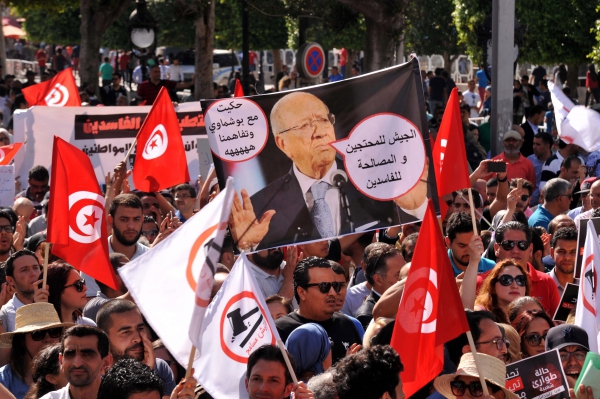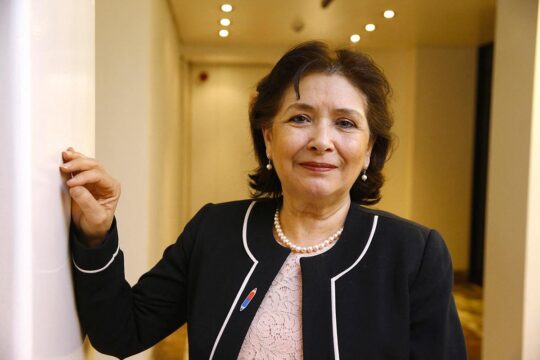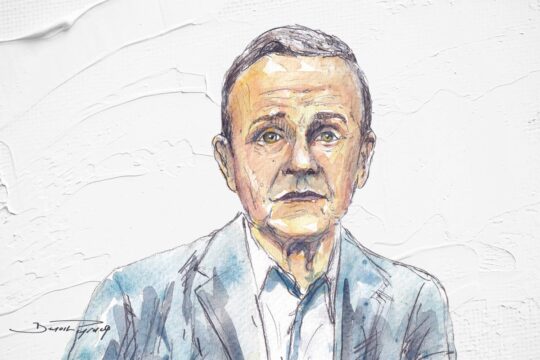Tunisia remains in the forefront of transitional justice with a surprise move this week on financial transparency. Prime Minister Youssef Chahed arrested suspected leaders of trafficking and corruption.
These people are talked about in an International Crisis Group (ICG) report, “Blocked Transition: Corruption and Regionalism in Tunisia”. Tunisians, used to impunity for politicians and their clans, can hardly believe this news, explains JusticeInfo’s Tunis correspondent Olfa Belhassine. At stake is not only the past but also the present. According to ICG, all key sectors in Tunisia are riddled with corruption, notably the Interior Ministry, customs and justice. The ICG, which is based in Brussels, points the finger at “300 men behind the scenes who pull the strings to serve their own interests”.
“These men are preventing any reforms,” explains our correspondent. “In fact, both the economic actors of the Sahel (coastal region in the east of the country), who have been operating for decades, and the new entrepreneurs of the interior – barons of the black economy who have prospered since the revolution on under-the-counter exchange deals and dealing contraband with Libya and Algeria – fund the political parties and are waging a merciless war against each other. They do this notably by trying to obtain key posts in the administration through which go bank credits and controls of the formal economy, thus helping to ‘break the chain of command within the ministries’.”
One of the things that pushed Youssef Chahed to launch this clean-up operation was a recent public hearing of one of the nephews of former First Lady Leila Trabelsi, a king of contraband under Ben Ali. In his confessions, he mentioned his accomplices. He did not name them, but everyone knows who they are, and some are among those arrested. The debate continues in the country, where the President himself wants to impose a so-called “national reconciliation” law which would absolve corrupt players of the former regime and which has been the cause of protest demonstrations. This proposed law would also deprive the Truth and Dignity Commission of most of its prerogatives in the field of corruption. Since the arrests, polls show that Tunisians are more optimistic about their country’s future.
Plea for justice in the DRC
Also of note this week is an initiative in the Democratic Republic of Congo (DRC) by some 30 civil society organizations who are calling for a transitional justice system to end impunity. They say the recurrent crises that have hit the DRC ever since independence in 1960 are the result of a failure to deal with the past and the absence of reparations for victims.
In the Central African Republic (CAR), hit by a new wave of violence against the population and UN peacekeepers, impunity also continues to reign. “For the moment, there is neither an imminent end to the crisis nor a durable solution to the CAR crisis in sight,” writes analyst Thierry Vircoulon. “As long as there is no strong pressure on the government and the armed groups, and the Security Council continues to opt for deliberate powerlessness whilst doing something to salve its conscience, the CAR will continue to have a low-level conflict with peaks of violence every four or five months. In two years, time will have done its work and the armed groups will have consolidated their economic base.”
And he concludes: “As its leaders were emptying the public coffers and tired donors were tiptoeing out, the CAR has become a ghost State.”







